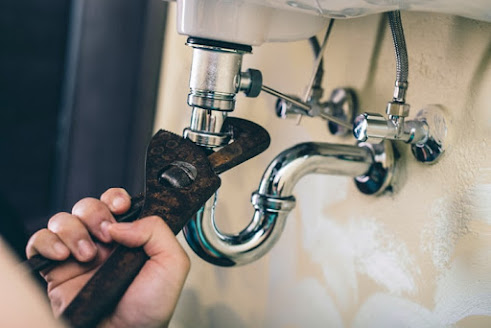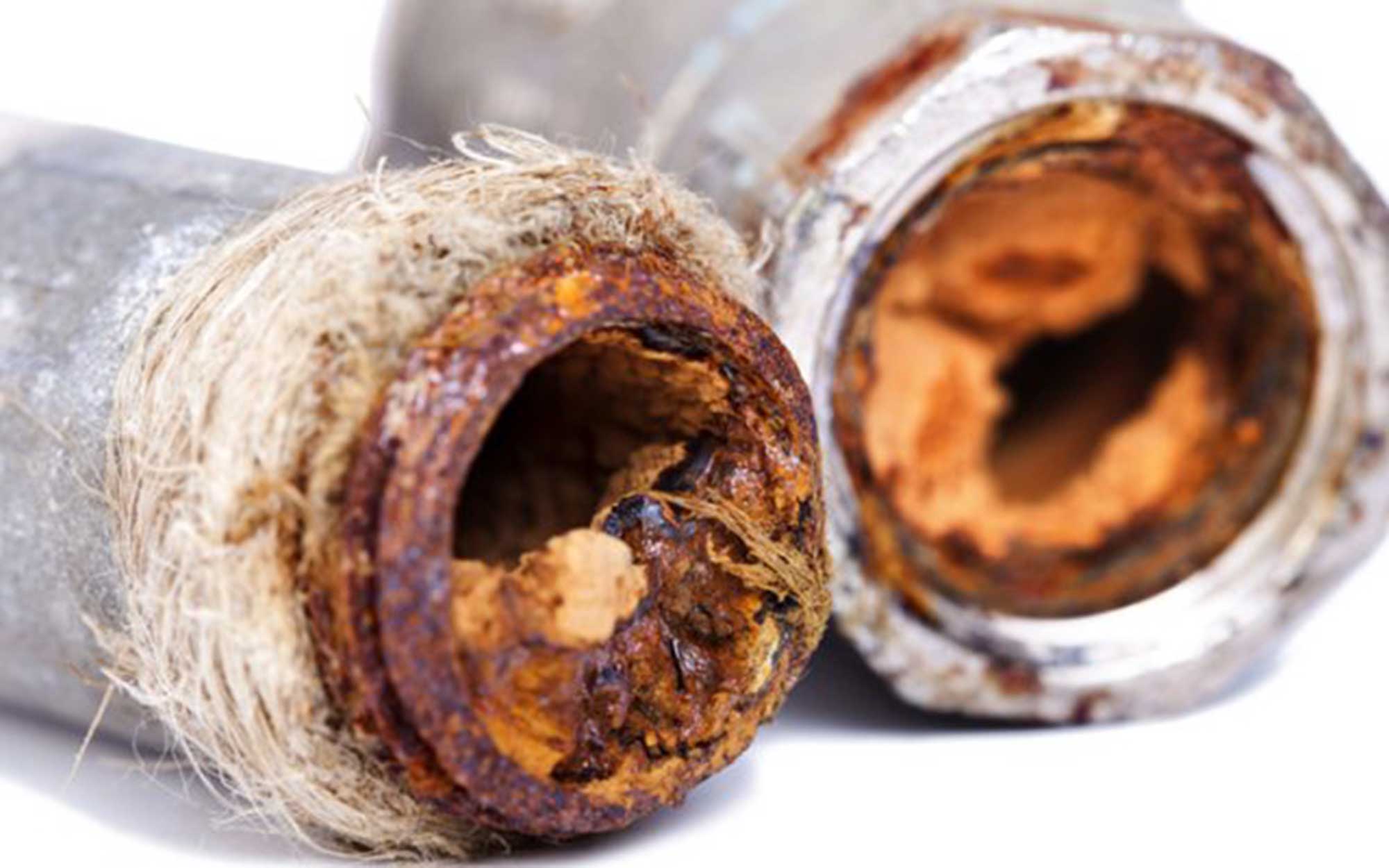We've discovered the article relating to Why Do My Plumbing Pipes Make A Knocking Noise directly below on the web and reckoned it made perfect sense to talk about it with you on my blog.

To diagnose loud plumbing, it is very important to identify first whether the unwanted audios take place on the system's inlet side-in various other words, when water is turned on-or on the drain side. Sounds on the inlet side have actually varied causes: too much water stress, worn shutoff and also faucet parts, improperly attached pumps or various other appliances, incorrectly positioned pipeline fasteners, and also plumbing runs having a lot of tight bends or various other limitations. Noises on the drainpipe side normally come from poor area or, just like some inlet side noise, a format consisting of tight bends.
Hissing
Hissing sound that happens when a faucet is opened a little typically signals excessive water stress. Consult your regional public utility if you presume this problem; it will certainly be able to tell you the water stress in your area as well as can install a pressurereducing shutoff on the incoming water pipe if essential.
Other Inlet Side Noises
Creaking, squealing, scratching, breaking, and touching typically are brought on by the growth or contraction of pipes, generally copper ones providing hot water. The noises occur as the pipelines slide against loosened bolts or strike close-by residence framing. You can often identify the area of the problem if the pipelines are exposed; simply follow the noise when the pipelines are making noise. More than likely you will uncover a loose pipeline wall mount or a location where pipes lie so near flooring joists or other framing items that they clatter versus them. Attaching foam pipe insulation around the pipelines at the point of call need to remedy the issue. Make certain straps as well as wall mounts are protected and also provide sufficient assistance. Where possible, pipe bolts must be attached to enormous architectural elements such as foundation wall surfaces as opposed to to framing; doing so minimizes the transmission of resonances from plumbing to surfaces that can enhance as well as move them. If affixing bolts to framing is inevitable, cover pipelines with insulation or other durable product where they speak to bolts, and also sandwich the ends of new fasteners between rubber washers when mounting them.
Dealing with plumbing runs that suffer from flow-restricting tight or various bends is a last resource that needs to be undertaken only after seeking advice from a proficient plumbing specialist. Regrettably, this circumstance is relatively typical in older homes that might not have been developed with indoor plumbing or that have seen several remodels, especially by amateurs.
Chattering or Screeching
Intense chattering or shrieking that happens when a shutoff or tap is activated, which generally goes away when the installation is opened totally, signals loosened or malfunctioning inner components. The option is to replace the valve or faucet with a brand-new one.
Pumps and also devices such as cleaning devices and dishwashers can move electric motor noise to pipes if they are incorrectly linked. Link such products to plumbing with plastic or rubber hoses-never rigid pipe-to isolate them.
Drainpipe Noise
On the drainpipe side of plumbing, the principal objectives are to get rid of surface areas that can be struck by falling or rushing water and to shield pipelines to include unavoidable audios.
In brand-new building, bathtubs, shower stalls, commodes, as well as wallmounted sinks as well as basins need to be set on or versus resilient underlayments to minimize the transmission of noise with them. Water-saving toilets and taps are much less noisy than conventional models; mount them rather than older types even if codes in your area still allow utilizing older fixtures.
Drainpipes that do not run up and down to the cellar or that branch into horizontal pipeline runs sustained at floor joists or other mounting present particularly frustrating sound problems. Such pipelines are huge enough to radiate substantial resonance; they also lug considerable amounts of water, which makes the situation even worse. In new construction, define cast-iron soil pipes (the huge pipes that drain commodes) if you can afford them. Their enormity consists of much of the sound made by water going through them. Also, stay clear of directing drainpipes in wall surfaces shared with rooms as well as rooms where individuals gather. Wall surfaces including drains must be soundproofed as was described previously, using dual panels of sound-insulating fiberboard and also wallboard. Pipes themselves can be covered with special fiberglass insulation created the function; such pipes have an invulnerable vinyl skin (often containing lead). Outcomes are not always adequate.
Thudding
Thudding noise, commonly accompanied by shuddering pipelines, when a tap or home appliance shutoff is shut off is a problem called water hammer. The noise as well as vibration are caused by the resounding wave of stress in the water, which all of a sudden has no area to go. Sometimes opening up a shutoff that discharges water swiftly into a section of piping having a restriction, arm joint, or tee fitting can create the very same condition.
Water hammer can normally be healed by installing installations called air chambers or shock absorbers in the plumbing to which the trouble valves or taps are attached. These devices enable the shock wave developed by the halted flow of water to dissipate in the air they have, which (unlike water) is compressible.
Older plumbing systems may have short upright areas of capped pipe behind walls on faucet competes the very same purpose; these can ultimately loaded with water, lowering or destroying their effectiveness. The cure is to drain the water supply totally by shutting down the major water valve and opening all faucets. Then open the primary supply valve as well as close the taps one by one, beginning with the tap nearest the shutoff and also finishing with the one farthest away.
WHY IS MY PLUMBING MAKING SO MUCH NOISE?
This noise indeed sounds like someone is banging a hammer against your pipes! It happens when a faucet is opened, allowed to run for a bit, then quickly shut — causing the rushing water to slam against the shut-off valve.
To remedy this, you’ll need to check and refill your air chamber. Air chambers are filled with — you guessed it — air and help absorb the shock of moving water (that comes to a sudden stop). Over time, these chambers can fill with water, making them less effective.
You’ll want to turn off your home’s water supply, then open ALL faucets (from the bathroom sink to outdoor hose bib) to drain your pipes. Then, turn the water back on and hopefully the noise stops! If you’re still hearing the sound, give us a call to examine further.
Whistles
Whistling sounds can be frustrating, as sometimes the source isn’t easily identified. However, if you can pinpoint which faucet or valve that may be the cause, you’ll likely encounter a worn gasket or washer — an easy fix if you replace the worn parts!Whistling sounds from elsewhere can mean a number of things — from high water pressure to mineral deposits. Your best plan of attack here is to give our plumbing experts a call. We’ll be able to determine where the noise is coming from and what the cause may be, then recommend an effective fix!
Cracks or Ticks
Cracking or ticking typically comes from hot water going through cold, copper pipes. This causes the copper to expand resulting in a cracking or ticking sound. Once the pipes stop expanding, the noise should stop as well.
Pro tip: you may want to lower the temperature of your water heater to see if that helps lessen the sound, or wrapping the pipe in insulation can also help muffle the noise.
Bangs
Bangs typically come from water pressure that’s too high. To test for high water pressure, get a pressure gauge and attach it to your faucet. Water pressure should be no higher than 80 psi (pounds per square inch) and also no lower than 40 psi. If you find a number greater than 80 psi, then you’ve found your problem!
Next step is to give us a call in order to install a pressure regulator. Trust us, you don’t want to wait to resolve this issue. Not only is the sound annoying, but high water pressure can be destructive to your home — including damaging certain appliances, like your washer and dishwasher.
Dripping
You might be accustom to the slow quiet drip your kitchen faucet makes. You might have even tuned out your bathroom sink dripping and drabbing all day long — but it’s time to find its cause.
A slow drip could signify a variety of easy to fix issues, such as a worn out O ring, or loose part. And by ignoring the drip, you could be wasting up to 2,000 gallons of water a year! So start conserving water — get it looked at ASAP.
https://www.pwessig.com/blog/2018/december/why-is-my-plumbing-making-so-much-noise-/

Do you appreciate reading up on Why Your Water Pipes Are Noisy and How To Shut Them Up? Leave a remark below. We will be interested to find out your suggestions about this content. In hopes that you come back again in the future. Enjoyed reading our write-up? Please share it. Help other people locate it. We truly appreciate reading our article about Why Do My Pipes Make Noises.
Request A Quote